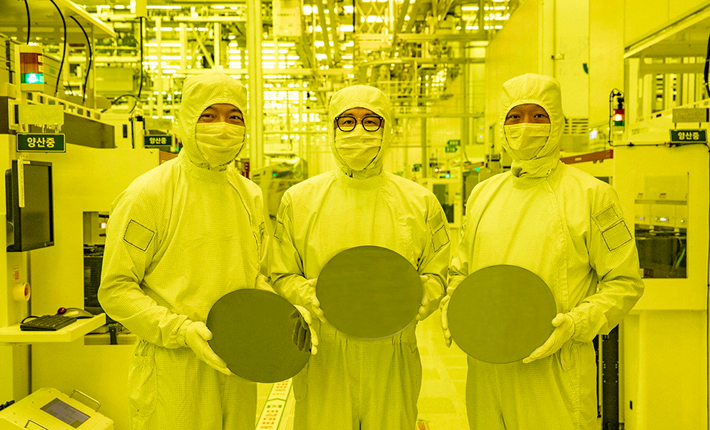South Korea’s Samsung Electronics said it had no plans to cut investment in chips this year, despite its gloomy earnings report released on Tuesday.
The chipmaker said its capital spending in 2023 would be similar to 2022.
The guidance bucks a broader industry trend to scale back spending and output, as a weak global economy condemns the industry to its worst downturn in over a decade.
Also on AF: US Blocking Export of 4G Chips, Items for China’s Huawei
Chipmakers SK Hynix and Micron have previously said they would slash investment. Bigger rival Taiwan Semiconductor Manufacturing Co (TSMC) has also announced a spending cut.
Samsung’s plans have, thus, fanned concern that the world’s biggest memory chipmaker intends to draw on its deep pockets and superior profit margins to gain market share from smaller peers.
“Samsung might be seeing this time as a good opportunity to increase market share, which should help it in the long term, at the expense of SK Hynix and Micron,” analyst Choi Yoo-june at Shinhan Securities said.
Greg Roh, head of research at Hyundai Motor Securities, estimated Samsung Electronics’ market share may reach the upper 40% range for DRAM chips and mid-30% range for NAND flash memory chips in the second half of the year, from around 43% and 32%.
Instead of cutting investment in response to slowing demand and falling prices, Samsung signalled it would curb short-term production organically through line maintenance, equipment adjustment and moving to advanced chipmaking processes. It also said it would increase the proportion of capital investment that goes into research and development.
“Samsung, in a roundabout way, is saying production will decrease slightly,” analyst Kim Yang-jae at Daol Investment and Securities said. “However, investors were hoping for a stronger production cut, or a comment about faster market rebound – so its shares fell.”
The share prices of Samsung and compatriot SK Hynix fell 3% and 2.2% respectively on Tuesday.
Chip profits tank to 13-year low
Samsung reported a 69% plunge in fourth-quarter profit on Tuesday, as consumer demand for electronic devices dropped and clients tightened their belts on a weak economy, dragging down memory chip prices.
The world’s biggest maker of memory chips and smartphones said October-December operating profit fell to 4.3 trillion won ($3.49 billion), from 13.87 trillion won a year earlier. That was Samsung’s lowest quarterly profit since 2014.
Revenue fell 8% to 70.5 trillion won.
The chipmaker said persistent macroeconomic uncertainty will make for a tough first half of this year. It expects demand to start recovering in the second half.
Sluggish demand and inventory adjustment will continue to impact the chip business in the first quarter, while smartphone demand is likely to decline year-on-year due to economic slowdown in major regions, Samsung said.
Also on AF: China’s 2022 Smartphone Sales Plunge to Lowest in a Decade
With clients tightening their belts on a weak economy, memory chip prices have fallen by double-digit percentages in 2022.
Samsung’s chip profit tumbled to about 270 billion won in the fourth quarter from 8.83 trillion won a year earlier, marking the lowest since the first quarter of 2009.
Some analysts expect the chip business to book a loss in the first quarter, pulling overall profit below that of the fourth.
In mobile, Samsung said fourth-quarter profit fell to 1.7 trillion won from 2.66 trillion won a year earlier, as a decline in low- and mid-end smartphone sales was greater than expected.
Samsung plans to unveil its latest Galaxy S flagship smartphones later this week.
The global technology industry has been battling a sharp and sudden downturn in demand since late last year, as companies cut spending on tech products and services while consumers spend less on discretionary goods in the face of surging inflation.
Last week, chipmaker Intel suffered a ‘historic collapse’, losing nearly $8 billion in market value on Friday. The US chipmaker stumped Wall Street with dismal earnings projections, as the personal computer industry experiences a chip glut.
The company said its revenue forecast was $3 billion below estimates as it also struggled with slowing growth in the data centre business.
- Reuters, with additional editing by Vishakha Saxena
Also read:
ASML’s Taiwan Expansion Signals Chip Sector’s Next Big Leap
Samsung Heir Made Chairman a Year After Jail Release
China Tensions Creating Serious Tests for Chip Industry: TSMC
China Gambles on Graphene to Win the Global Microchip War
























